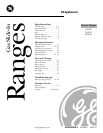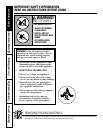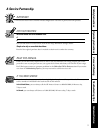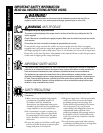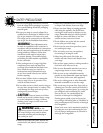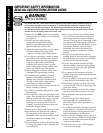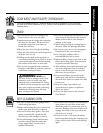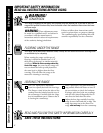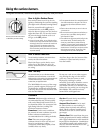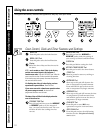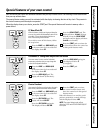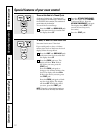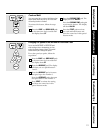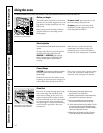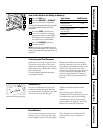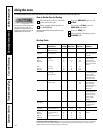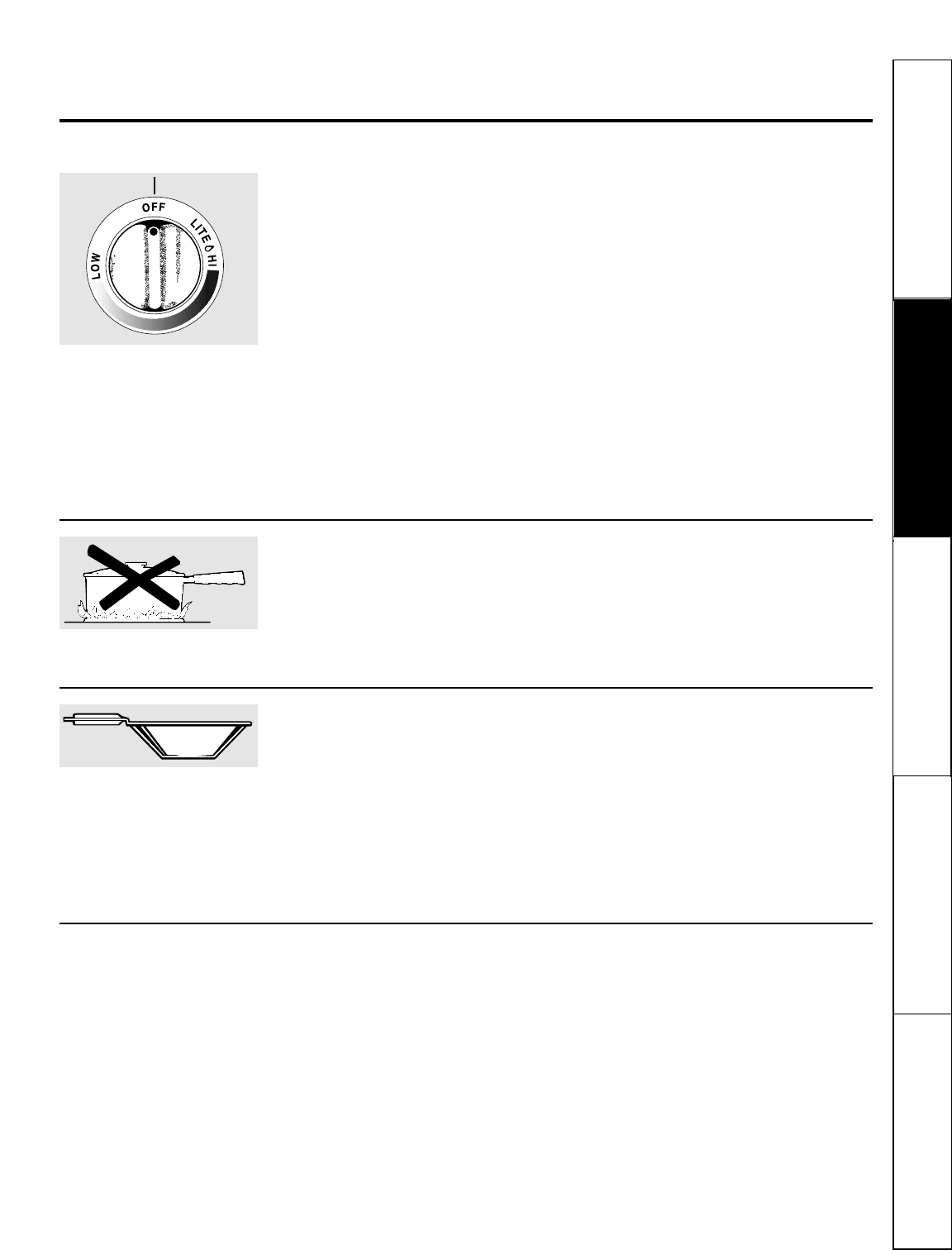
Safety Instructions Operating Instructions Care and Cleaning Troubleshooting Tips
Customer Service
Using the surface burners.
Throughout this manual, features and appearance may vary from your model.
How to Light a Surface Burner
Your surface burners are lit by electric
ignition, eliminating the need for standing
pilot lights with constantly burning flames.
Push the control knob in and turn it
counterclockwise to the LITE position.
After the burner ignites, turn the knob to
adjust the flame size. To turn the burner
off, turn the knob clockwise as far as it
will go, to the OFF position.
■ In case of a power failure, you can light the surface
burners on your range with a match. Hold a lit match
to the burner, then push in and turn the control knob
to the LITE position. Use extreme caution when
lighting burners this way. Surface burners in use
when an electrical power failure occurs will continue
to operate normally.
■ Do not operate the burner for an extended period of
time without cookware on the grate. The finish on
the grate may chip without cookware to absorb
the heat.
■ Check to be sure the burner you turn on is the one
you want to use.
■ Be sure the burners and grates are cool before you
place your hand, a pot holder, cleaning cloths or
other materials on them.
■ The smaller burner (right rear position) will give the
best simmer results. The lowest setting of the
burner has a small flame to provide simmering
capability. To simmer foods, set the cooktop control
knob to the lowest setting that will maintain the
desired simmer. If simmering on one burner and the
other burners are turned on, the gas flow of the
simmering burner may have to be adjusted.
Be sure you turn the control knob
to OFF when you finish cooking.
How to Select Flame Size
For safe handling of cookware, never let the flames
extend up the sides of the cookware.
Watch the flame, not the knob, as you
reduce heat. The flame size on a gas
burner should match the cookware you
are using.
Any flame larger than the bottom of the
cookware is wasted and only serves to
heat the handle.
Wok This Way
We recommend that you use a flat-bottomed wok,
available at your local retail stores, or use the Wok
Holder accessory with traditional round bottomed woks.
The Wok Holder accessory, model JXWK, can be
ordered from your appliance dealer.
The Wok Holder fits on top of the range
grate to provide support and proper air
circulation for traditional round bottom
woks only. Do not use flat bottomed woks
with the Wok Holder.
Do not use a wok on any other support
ring. Placing the ring over the burner
grate may cause the burner to work
improperly, resulting in carbon
monoxide levels above allowable current
standards. This could be dangerous to
your health. Do not try to use such woks
without the ring unless you are using the
Wok Holder. You could be seriously
burned if the wok tipped over.
Use a flat-bottomed wok.
Cookware
Aluminum: Medium-weight cookware is
recommended because it heats quickly
and evenly. Most foods brown evenly in
an aluminum skillet. Use saucepans with
tight fitting lids when cooking with
minimum amounts of water.
Enamelware: Under some conditions,
the enamel of some cookware may melt.
Follow cookware manufacturer’s
recommendations for cooking methods.
Glass: There are two types of glass
cookware: those for oven use only and
those for top-of-range cooking
(saucepans, coffee and tea pots). Glass
conducts heat very slowly.
Cast Iron: If heated slowly, most skillets
will give satisfactory results.
Heatproof Glass Ceramic: Can be used
for either surface or oven cooking. It
conducts heat very slowly and cools very
slowly. Check cookware manufacturer’s
directions to be sure it can be used on
gas ranges.
Stainless Steel: This metal alone has poor
heating properties and is usually combined
with copper, aluminum or other metals for
improved heat distribution. Combination
metal skillets usually work satisfactorily if
they are used with medium heat as the
manufacturer recommends.
9



